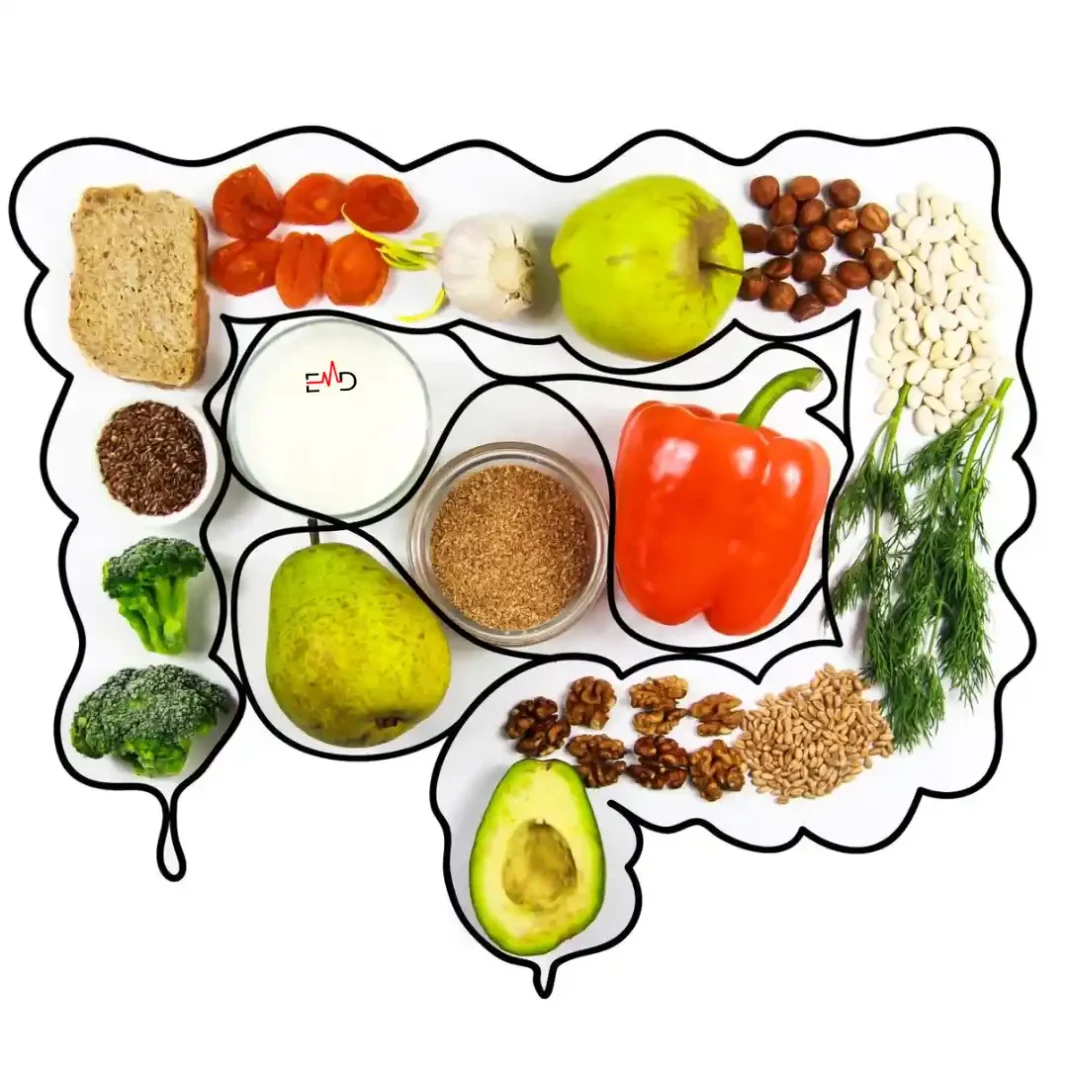Exercise Daily – The gut microbiome, composed of trillions of bacteria within the digestive tract, is increasingly recognized as a cornerstone of overall health. These bacteria in the gut microbiome include different beneficial and harmful species that work together to maintain a healthy body. They play a role in absorbing nutrients, breaking down food, and supporting the balance of the gut microbiome.
A proper balance between good and bad bacteria is critical for gastrointestinal health, and issues like a leaky gut or an imbalance can contribute to chronic conditions such as type 1 and type 2 diabetes and irritable bowel syndrome. Studies have found that the gut microbiome reduces inflammation, boosts immunity, and enhances the body’s ability to recover. Consuming prebiotic foods and probiotics, which are live bacteria, can help promote a healthy gut by nurturing the good bacteria.
Understanding Gut Health
Gut health encompasses the optimal functioning and balance of the entire digestive system, from the stomach to the intestines. It involves maintaining a harmonious balance of the microbiome, which supports digestion, immunity, and mental health. Achieving and sustaining gut health is pivotal for overall vitality and resilience against various health challenges. Beyond digestion, the gut and brain are intricately connected through the central nervous system, with the gut often referred to as the “second brain.”
The bacteria found in your gut send signals to the brain that influence mood, stress, and cognitive functions and may play a role in mental health disorders like anxiety and depression. Maintaining a healthy gut microbiota by including fiber-rich foods, probiotics, and prebiotics can support this connection.
For example, foods like yogurt, fermented vegetables, and whole grains help restore the balance of bacteria and improve the functioning of the gastrointestinal tract. As the human gut microbiome becomes a focus of research, it is clear that the foods you eat directly impact the types of bacteria that live in your gut, underscoring the importance of dietary choices for fostering a resilient microbiome and achieving a healthy body.

Why Gut Health Matters
Maintaining a balanced gut microbiome is vital for multiple aspects of health. When the microbiome is in harmony, it supports efficient digestion, robust immune function, and stable mental health. Conversely, an imbalanced microbiome can lead to various health issues, from digestive discomfort to chronic diseases.
How to Improve Gut Health
Enhancing gut health involves a combination of dietary modifications, probiotic and prebiotic supplementation, and lifestyle changes that support a balanced microbiome.
Probiotics and Prebiotics Explained
Understanding the roles of probiotics and prebiotics is essential for improving gut health:
- Probiotics: These are live beneficial bacteria that can be consumed through fermented foods or supplements. They help replenish and maintain a healthy balance of gut bacteria.
- Sources of Probiotics: Yogurt, kefir, sauerkraut, kimchi, miso, and probiotic supplements.
- Benefits: Enhance digestion, boost the immune system, and improve mental health by increasing the production of neurotransmitters like serotonin.
- Prebiotics: These are non-digestible fibers that serve as food for probiotics, promoting the growth and activity of beneficial bacteria.
- Sources of Prebiotics: Fruits (bananas, apples), vegetables (onions, garlic, leeks), whole grains, and legumes.
- Benefits: Improve gut barrier function, enhance mineral absorption, and reduce the risk of certain chronic diseases by fostering a healthy microbiome.
Foods to Support a Healthy Gut
Incorporating specific foods into your diet can significantly enhance gut health by promoting the growth of beneficial bacteria and supporting overall digestive function.
Fermented Foods
Fermented foods are rich in probiotics, which help maintain a healthy balance of gut bacteria:
- Kimchi: A traditional Korean dish made from fermented vegetables, often including cabbage and radishes, spiced with chili peppers and garlic.
- Sauerkraut: Fermented cabbage that provides a significant amount of probiotics and vitamin C.
- Yogurt: Contains live cultures of beneficial bacteria like Lactobacillus and Bifidobacterium, which aid digestion and boost immunity.
- Kefir: A fermented milk drink that is even richer in probiotics than yogurt, offering a diverse range of beneficial bacteria.
- Miso: A Japanese seasoning made from fermented soybeans, used in soups and sauces, providing probiotics and essential nutrients.
Fiber-Rich Foods
Fiber-rich foods are crucial for maintaining a healthy gut because they act as prebiotics, feeding beneficial bacteria:
- Fruits: Apples, bananas, berries, and pears are high in dietary fiber and help promote healthy digestion.
- Vegetables: Broccoli, carrots, Brussels sprouts, and artichokes provide essential fiber for gut health.
- Whole Grains: Oats, quinoa, brown rice, and whole wheat products are excellent sources of fiber that nourish the microbiome.
- Legumes: Beans, lentils, and peas are rich in fiber and protein, supporting both gut health and overall nutrition.

Lifestyle Changes for Gut Health
In addition to dietary adjustments, certain lifestyle changes can support a healthy gut microbiome:
- Reduce Stress: Chronic stress can disrupt the gut microbiome and negatively impact digestion. Practices like meditation, yoga, and deep-breathing exercises can help manage stress levels.
- Stay Active: Regular physical activity promotes the growth of beneficial bacteria and enhances overall digestive health.
- Avoid Processed Foods: Processed foods often contain additives, preservatives, and high sugar levels, which can disrupt the balance of gut bacteria.
- Limit Antibiotic Use: While antibiotics are essential for fighting bacterial infections, overuse can harm beneficial gut bacteria. Use antibiotics only when necessary and follow medical advice.
- Get Enough Sleep: Adequate sleep is crucial for maintaining a healthy immune system and supporting gut health.
The Gut-Immune System Connection
The gut is pivotal in the immune system, acting as a frontline defense against pathogens. Approximately 70% of the immune system resides in the gut, which interacts closely with the microbiome to protect the body from harmful invaders.
How Gut Health Influences Immunity
A healthy gut microbiome strengthens the immune system in several ways:
- Barrier Function: Beneficial bacteria help maintain the integrity of the gut lining, preventing harmful pathogens from entering the bloodstream.
- Immune Regulation: The microbiome interacts with immune cells to modulate immune responses, ensuring the body can effectively fight infections without overreacting and causing excessive inflammation.
- Pathogen Defense: Good bacteria compete with harmful microorganisms for resources and space, reducing the likelihood of infections.
- Anti-inflammatory Effects: A balanced microbiome helps reduce chronic inflammation linked to various autoimmune and inflammatory diseases.
Gut Health and Heart Health
Emerging research indicates a significant link between gut health and cardiovascular health. A balanced gut microbiome can influence heart health by reducing inflammation, supporting healthy cholesterol levels, and maintaining proper blood pressure.
The Impact of a Healthy Gut on Cardiovascular Health
Certain gut bacteria produce metabolites that positively affect heart health:
- Short-Chain Fatty Acids (SCFAs): Produced by the fermentation of dietary fiber, SCFAs like butyrate have anti-inflammatory properties and help regulate blood pressure.
- Trimethylamine N-oxide (TMAO): While high levels of TMAO are associated with an increased risk of heart disease, a balanced gut microbiome can help regulate its production.
- Cholesterol Metabolism: Some gut bacteria can influence cholesterol metabolism, helping maintain healthy levels and reduce the risk of atherosclerosis.
The Future of Gut Health Research
The field of gut health research is rapidly evolving, uncovering new insights into how the microbiome impacts various aspects of health. Scientists are exploring innovative microbiome therapies and personalized nutrition plans to treat and prevent various health conditions.
Emerging Studies on the Gut Microbiome
Ongoing research is delving into the complex interactions between the gut microbiome and different health conditions:
- Obesity and Metabolic Syndrome: Studies examine how gut bacteria influence metabolism, fat storage, and insulin sensitivity, potentially leading to targeted microbiome-based treatments for obesity and diabetes.
- Neurodegenerative Diseases: Research is investigating the role of the gut microbiome in conditions like Alzheimer’s and Parkinson’s disease, exploring how gut health may influence brain function and disease progression.
- Autoimmune Disorders: Scientists are exploring how imbalances in the gut microbiome may trigger or exacerbate autoimmune conditions, paving the way for microbiome-focused therapies.
- Cancer Treatment: Emerging evidence suggests that the gut microbiome can affect the efficacy of certain cancer treatments, such as immunotherapy, leading to personalized approaches that optimize treatment outcomes.

Conclusion: A Holistic View of Gut Health
Understanding the intricate link between gut health and overall well-being is paramount for achieving a balanced and healthy life. A harmonious microbiome supports efficient digestion, robust immunity, stable mental health, and cardiovascular function. By making mindful choices in diet and lifestyle, such as incorporating probiotic and prebiotic-rich foods, managing stress, and staying physically active, we can nurture our gut health and enhance our overall health and quality of life.
FAQs – The Link Between Gut Health and Overall Well-being
Q: What are the main signs of an unhealthy gut?
A: Common signs of an unhealthy gut include digestive issues like bloating, gas, constipation, and diarrhea. Additionally, fatigue, skin problems, frequent infections, mood swings, anxiety, and unexplained weight fluctuations can indicate an imbalance in gut health.
Q: Can improving gut health help with mental health issues?
A: Yes, the gut-brain connection suggests that a healthy gut can positively influence mental health by enhancing the production of neurotransmitters like serotonin, reducing inflammation, and improving overall brain function. This can lead to improved mood and reduced symptoms of anxiety and depression.
Q: Are probiotics safe to take daily?
A: For most people, taking probiotics daily is safe and can be beneficial for maintaining a healthy gut microbiome. However, individuals with underlying health conditions or compromised immune systems should consult a healthcare provider before starting probiotic supplements to ensure they are appropriate for their specific situation.
Q: What foods should I avoid for a healthy gut?
A: To maintain a healthy gut, it is advisable to avoid processed foods, high-sugar items, and artificial sweeteners, as these can disrupt the balance of gut bacteria. Additionally, limiting the intake of red and processed meats, trans fats, and excessive alcohol can help support gut health.
Q: How long does it take to improve gut health?
A: Improvements in gut health can often be noticed within a few weeks of making dietary and lifestyle changes. However, achieving lasting benefits and a fully balanced microbiome may take several months of consistent healthy habits, including a balanced diet, regular exercise, and stress management.




